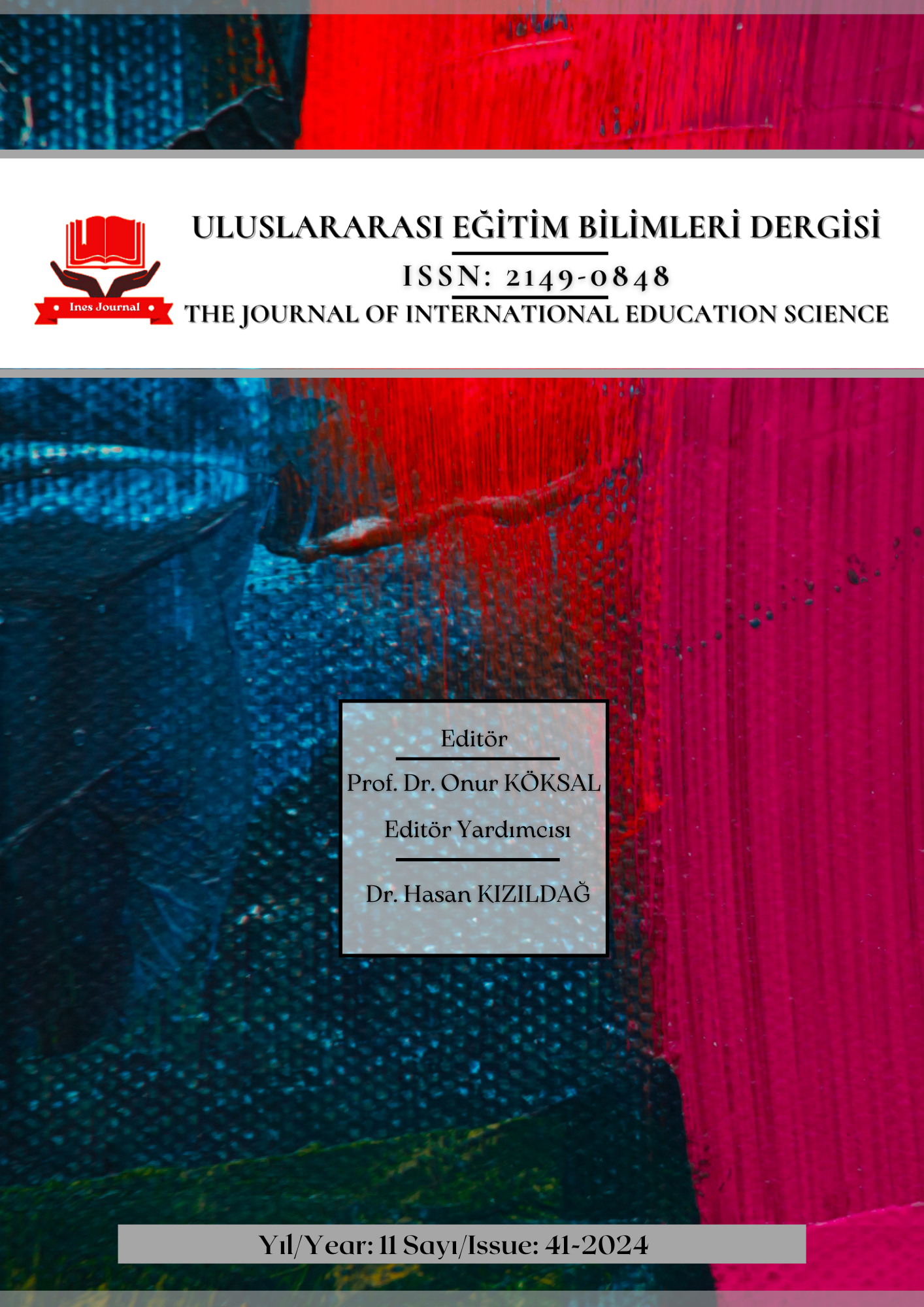Author :
Abstract
Yapay zeka uygulamalarının eğitim sistemine entegrasyonu, uluslararası gelişmelere uyum sağlamak ve geleceğe hazırlık açısından kritik öneme sahiptir. Öğretmenlerin bu teknolojileri etkili kullanabilmesi için dijital yeterliliklerini artırmaları gerekmektedir. Milli Eğitim Bakanlığı'nın 2023 Eğitim Vizyonu, yapay zeka teknolojilerinin eğitimde kullanılmasını desteklemektedir. Bu araştırma, sosyal bilgiler öğretmenlerinin eğitimde yapay zeka kullanımına ilişkin görüşlerini belirlemeyi amaçlamaktadır. Nitel araştırma yöntemlerinden durum çalışması kullanılarak gerçekleştirilen çalışmanın örneklemini, 2023-2024 eğitim ve öğretim yılı bahar döneminde aktif görev yapan 15 sosyal bilgiler öğretmeni oluşturmaktadır. Veriler, yarı yapılandırılmış görüşme formu ile toplanmış ve içerik analizi yöntemiyle incelenmiştir. Araştırma bulguları, yapay zekanın eğitim süreçlerini kolaylaştırdığı, öğrenmeyi hızlandırdığı ve öğrencilerin ilgisini çektiğini göstermektedir. Ayrıca, yapay zeka, materyal hazırlama ve ölçme değerlendirme süreçlerinde de önemli kolaylıklar sunmaktadır. Ancak bazı öğretmenler, etik sorunlar ve gizlilik endişeleri nedeniyle yapay zeka kullanılmasına daha dikkatli yaklaşmaktadır. Bu nedenle, yapay zeka kullanılmasına yönelik zorluklar, öğrenci ve öğretmenlerden okulların altyapısına, etik ve güvenlik konularına kadar çok boyutlu bir şekilde ele alınmalıdır.
Keywords
Abstract
The integration of artificial intelligence applications into the education system is crucial when it comes to adapting to international developments and preparing for the future. Teachers need to expand their digital skills in order to use these technologies effectively. The National Education Ministry's Education Vision 2023 supports the use of artificial intelligence technologies in education. The aim of this research is to identify the views of social studies teachers on the use of artificial intelligence in the classroom. The sample of the study, which was conducted using a case study from qualitative research methods, consists of 15 social studies teachers who are actively working in the spring semester of the 2023-2024 academic year. The data was collected using a semi-structured interview form and analysed using the content analysis method. The research results show that artificial intelligence facilitates educational processes, accelerates learning and attracts students' attention. In addition, artificial intelligence offers considerable relief in the preparation of material and the measurement and assessment processes. However, some teachers are more cautious about the use of artificial intelligence due to ethical issues and privacy concerns. Therefore, the challenges for the use of AI should be addressed multi-dimensionally, from students and teachers to school infrastructure, ethical and security issues.





